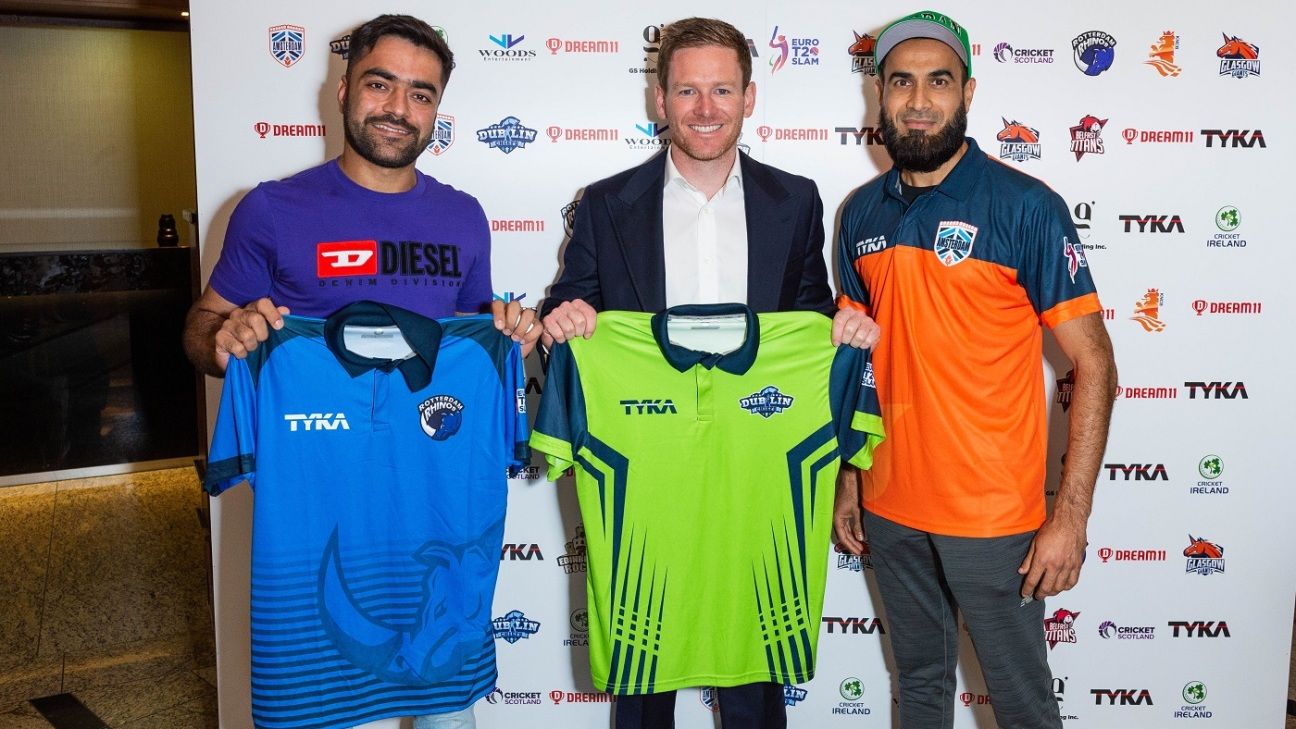
In the wake of the Euro T20 slam tournament being cancelled, the Federation of International Cricketers' Association (FICA) is working with the players to see if "any potential recourse is open to them".
Two weeks before the tournament was due to start, the organisers of the Euro T20 slam had pulled the plug citing financial problems. This left several players from Scotland, Netherlands and Ireland - including marquee picks like Rashid Khan and Eoin Morgan - out of contract and with little hope of securing the wages promised to them.
This isn't new though. A FICA survey of almost 400 current men's and women's professional players conducted in 2018-19 suggests over 34% of them have experienced late payment or non-payment under a cricket contract. The Euro T20 slam was set up by the same group of people that ran the Global T20 Canada where too there were issues of players not being compensated on time.
"Some players had foregone other opportunities to commit to the league," FICA head Tony Irish said in a press release on Monday. "And we also believe the league has an obligation to players to demonstrate some goodwill given the expectation created, especially if there is a genuine plan to go ahead with the event in the future.
"FICA had been in the process of assisting SCA (Scottish Cricketers' Association), ICA (Irish Cricketers' Association) and the players to put in place some basic contractual protections, in particular relating to player payments specific to the Euro T20 Slam. What has happened now simply emphasises the need for these protections.
"Separately, FICA is also aware of numerous cases of players not being paid what is owed to them under their playing contracts for other previously completed domestic T20 leagues."
That the players themselves - many of them from Associate nations who don't normally get jobs at IPL or BBL level - were looking forward to the competition was made clear by Scotland captain Kyle Coetzer earlier this week.
"Let's be honest, pretty much every one of the players was going to earn more in that space of time, to what they would earn in a full year playing cricket," he told ESPNcricinfo. "You have to look at the impact it may have on some guys and certainly there's a couple of boys that were potentially looking to go away at some time during the winter and now they probably need to get a job. It would have created giving guys an opportunity to feel an element of security in what we try and do."
Irish sympathised with them saying, "The players also play a critical role for the sport globally, and it's time for enforceable protections to be put in place for players too. They should not be left to exercise leverage or litigate in various part of the world to enforce basic contractual rights, especially when they've delivered the value that they've been contracted for. Like employees in all other industries, players make life decisions based on what is owed to them.
"This is an issue that we are working in global regulations discussions with the ICC and member Boards and FICA has proposed proactive solutions to non-payment issues. We will continue to advocate for appropriate protections to form part of the game's regulatory framework, including minimum contract standards, payment enforcement mechanisms, and a fit for purpose dispute resolution body. There is precedent for similar measures in progressive sports around the world."















 Phone: (800) 737. 6040
Phone: (800) 737. 6040 Fax: (800) 825 5558
Fax: (800) 825 5558 Website:
Website:  Email:
Email: 






